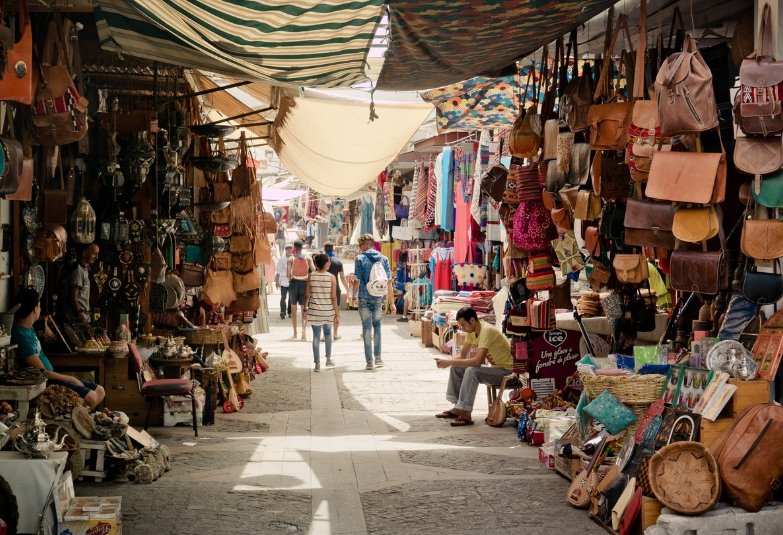Shopping tips
Ayodhya, renowned for its religious and historical significance, is not only a haven for spiritual seekers but also a destination for unique shopping experiences. Whether you’re a pilgrim looking for sacred souvenirs, a traveler seeking authentic handicrafts, or simply someone who loves to collect mementos from each place you visit, Ayodhya has much to offer. Shopping here can be a deeply rewarding experience, as most items reflect the city’s rich cultural and religious heritage.
In this blog, we’ll provide tips and insights on what to buy and where to find the best shopping spots in Ayodhya.
1. Shop for Spiritual Souvenirs and Religious Items
Ayodhya’s spiritual legacy is reflected in the religious items available throughout the city. One of the most popular purchases is idols of Lord Rama, Sita, and Hanuman, which are available in various materials such as brass, marble, and wood. These idols make for meaningful souvenirs, symbolizing devotion and faith.
Other common spiritual items include:
- Prayer beads (rudraksha mala): Believed to have powerful spiritual significance, often worn or used during meditation.
- Incense sticks and oils: Locally made incense with calming fragrances, perfect for creating a serene atmosphere at home.
- Holy scriptures and books: Find books on the Ramayana, Bhagavad Gita, and other sacred texts for those interested in deepening their spiritual knowledge.
- Shopping Tip: Ramkot Market, near the Ram Janmabhoomi, is one of the best places to find religious items. The vendors here often have a variety of beautifully crafted idols and other spiritual goods.
2. Explore Handicrafts and Local Art
Ayodhya’s craft heritage is another aspect of the city that travelers love to explore. The city’s artisans create stunning handicrafts, many of which are inspired by its religious and historical legacy. Popular handicrafts include:
- Wood carvings: Intricate carvings of deities and mythological scenes made by local craftsmen.
- Brass artifacts: From traditional lamps to ornate statues, brass items are a reflection of the city’s ancient traditions.
- Handmade textiles: Look for shawls, stoles, and scarves made by local weavers, often adorned with traditional patterns and symbols.
These items not only make for excellent souvenirs but also help support the local artisan community.
- Shopping Tip: Visit Chowk Bazar for local handicrafts. It’s a vibrant marketplace where you can interact directly with artisans and find one-of-a-kind items at reasonable prices.
3. Bargain with Respect
One of the key shopping tips in Ayodhya, and India in general, is knowing how to bargain politely. Many of the shops, especially in the local markets, operate without fixed prices, and haggling is a part of the shopping culture. However, it’s important to bargain respectfully and with a smile. Start by offering around 60–70% of the quoted price and work your way to a fair deal. Always remember that bargaining is a friendly negotiation rather than an argument.
- Shopping Tip: When shopping at smaller stalls and street markets, feel free to engage in bargaining, but avoid doing so at shops where prices are marked.
4. Look for Ayodhya’s Special Sweets and Snacks
Ayodhya is not only known for its religious significance but also for its special sweets. Among the most popular is Peda, a sweet made from condensed milk and sugar, which is often offered to deities and then enjoyed as prasadam (blessed food). Another popular treat is Balushahi, a deep-fried dough that is soaked in sugar syrup, giving it a crispy exterior and soft interior.
These sweets are perfect to bring home as edible souvenirs or to enjoy during your trip.
- Shopping Tip: Jain Sweets and other sweet shops near Hanuman Garhi are popular places to buy fresh sweets. Be sure to sample before purchasing to ensure the best quality.
5. Shop for Authentic Fabrics and Garments
Ayodhya is home to artisans who produce beautiful traditional garments and textiles. For those interested in Indian clothing, handwoven saris, kurtas, and dupattas are available in a variety of fabrics, such as silk, cotton, and handloom. Many of these garments feature intricate embroidery and are dyed in traditional colors that reflect the cultural richness of the region.
If you’re interested in buying something wearable as a keepsake or gift, explore these clothing items for an authentic connection to the local craft.
- Shopping Tip: The Rajghat Market and Golghar Market are good places to find authentic textiles and garments. Don’t hesitate to ask about the origin of the fabric and the techniques used, as many of the textiles are crafted using age-old traditions.
6. Respect the Sacred Nature of the City
While shopping in Ayodhya, it’s important to remember that the city is deeply spiritual, and its markets often sell religious items that hold great significance. Treat the objects and the places you visit with respect. When handling idols or sacred items, do so with care and understanding of their cultural importance.
- Shopping Tip: If you’re purchasing religious items, ask the vendors about their significance and the proper way to display or handle them once you take them home.
Conclusion: A Sacred Shopping Experience
Shopping in Ayodhya goes beyond the usual souvenirs; it’s an opportunity to connect with the city’s deep spiritual and cultural roots. From sacred idols and religious items to handcrafted textiles and traditional sweets, Ayodhya’s markets offer something for everyone. Whether you’re a pilgrim taking home blessings or a traveler collecting memories, these shopping tips will help you navigate the markets with ease and respect.
As you explore Ayodhya’s streets, remember that each item carries with it a story, a tradition, and a part of the city’s rich heritage—something you can bring back with you to cherish long after your visit.

Leave a Reply